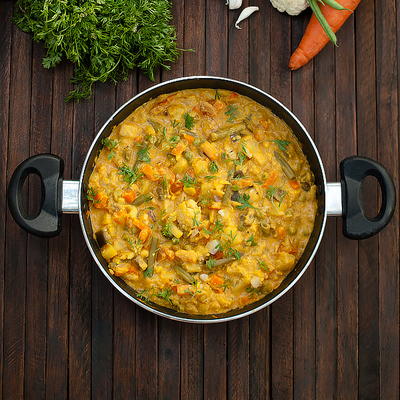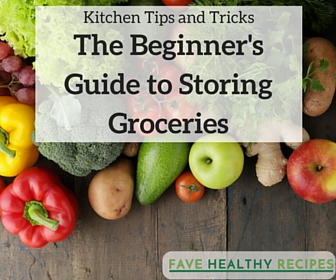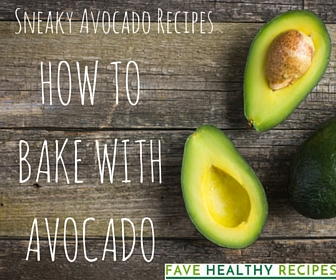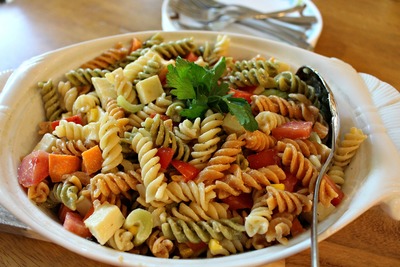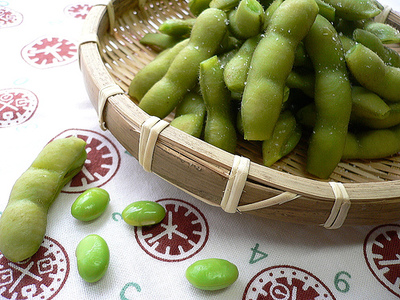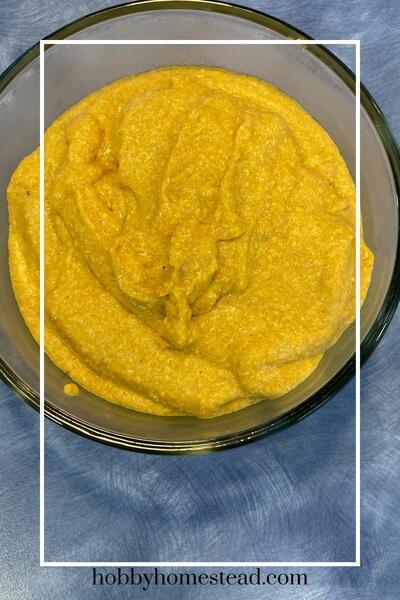What Are Macronutrients? + Macro Diet Recipes
Macronutrients for beginners: What exactly are they, where can you find them, and recipes for your macro diet.
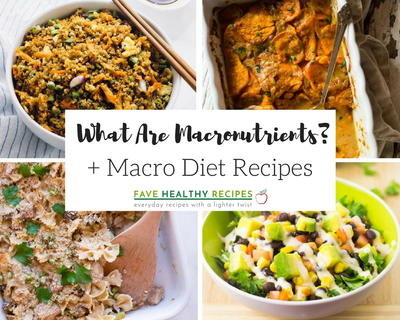
Our bodies are complicated and they have a lot of nutritional needs in order to survive and function. Our diet is really important to meeting these needs; therefore, it's important to understand the two different types of nutrients into which your diet can be split.
On one side, you have macronutrients, which are carbohydrates, proteins, and fats. On the other, you have micronutrients, which are vitamins and minerals. You've probably heard of these terms before, but what do they actually mean and how can you be sure you're getting enough of each?
The simple answer is: "Macronutrients" is just a fancy name for foods your body needs to function at its best. In order to have a balanced and healthy diet, you need to consume a certain amount of proteins, fats, and carbohydrates - and that's all macronutrients are. They're just nutrients your body requires in large amounts to provide the energy you need to maintain body functions and...well, live.
Table of Contents
Definition of Macronutrients
Mac-ro-nu-tri-ent: noun; BIOLOGY
A substance required in relatively large amounts by living organisms.
- a type of food (e.g., fat, protein, carbohydrate) required in large amounts in the human diet.
Why Are Macronutrients Important?
All three macronutrients have their own specific roles and functions in the body. They supply our bodies with calories and energy, so we need them in relatively large amounts so our bodies can grow, develop, repair itself, and just feel good in general.
The trick is to understand how each macronutrient plays a different role in the body and to tailor your diet accordingly.
Fats
Fats have been getting a bad name lately, but a lot of fats are healthy and your body needs them to function properly. Fats should account for about 15-20% of what you eat.
Fats improve brain development, overall cell functioning, protect the body's organs, and they even help you absorb vitamins found in foods.
There are three main types of fats: saturated fats, unsaturated fats, and trans fats.
Saturated fat is found in foods like meat, butter, and cream. Unsaturated fat is found in plant sources like olive oil, avocados, nuts, and canola oil. Trans fats are in commercially produced baked goods, snack foods, and fast foods.
Replacing saturated fats and trans fats in your diet with unsaturated fats has been shown to decrease the risk of developing heart disease.
Examples of healthy fats (pro-tip: limit animal sources of fat!):
- Walnuts
- Avocados
- Tuna
- Flax seed
- Almonds
- Canola oil
- Fish
- Peanuts
- Soybean oil
- Trout
- Salmon
- Sesame seeds
- Olive oil
- Cashews
Protein
I think we all know by now that protein is good for you, but maybe not the specifics of why. Protein is essential for repairing and regenerating body tissue and cells. It also maintains a healthy and functioning immune system and manufactures hormones.
None of this would be possible without amino acids, which are found in protein-based foods. In total, there are 20 types of amino acids, 9 of which are considered essential and can only be found in certain foods.
Good sources of protein (pro-tip: keep it lean!):
- Almonds
- Soy beans
- Beans
- Peanuts
- Fish
- Nuts
- Chicken
- Eggs
- Seeds
- Turkey
- Tofu
- Navy beans
- Kidney beans
Carbohydrates
Carbohydrates are made of small chains of sugar that the digestive system breaks down into glucose to use as the body's energy source. They need to make up around 45-65% of your diet.
Carbs are the body's preferred energy source; every cell and tissue can use glucose for energy. It also prevents the body from using protein as an energy source.
Dietary fibers in carbohydrates contribute to the overall healthy of your colon and play a role in regulating your blood sugar levels.
Healthy sources of carbohydrates (pro-tip: keep it high in fiber!):
- Rye bread
- Beans
- Quinoa
- Oats
- Lentils
- Whole grain bread
- Fruits
- Sweet potatoes
- Bran flakes
- Pinto beans
- Oatmeal
- Navy beans
- Whole grain pasta
Recipes with Healthy Fats
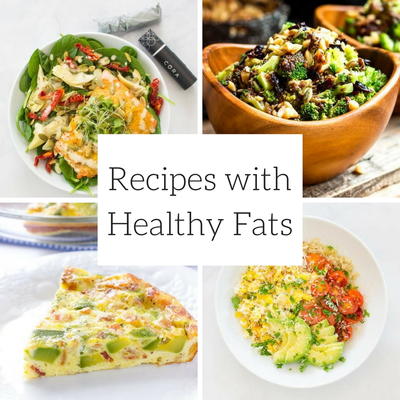
As you read above, fat usually gets a bad name, but all of these recipes have good sources of fat. From avocados to salmon, there is something in this list for everyone to enjoy. Healthy fats should be about 20% of your diet, so don't be afraid to dig into these delicious macro recipes.
Recipes with Good Sources of Protein
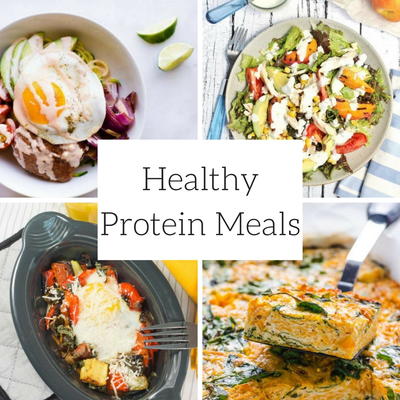
Protein is always a good thing (though, of course, everything should be consumed in moderation), so these protein-packed recipes are sure to be a hit at home. There are a ton of sources of protein - including vegetarian proteins - so there's no excuse to have a protein deficiency in your diet. All of these protein macro recipes are delicious and super easy to make.
Recipes with Healthy Carbs
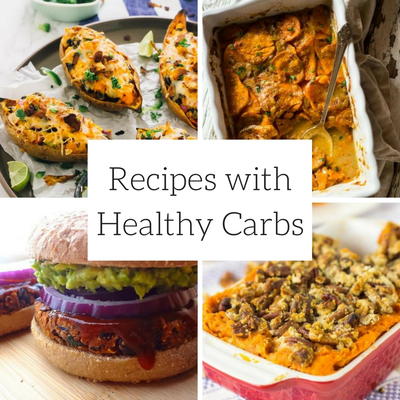
A lot of people say that you should avoid all carbohydrates at all costs. But they're wrong. Carbs are your body's energy source and should be at least half of what you consume.
However, it does matter what kind of carbs you eat. Which is why we've collected some recipes that use complex and healthy carbs in their ingredients. Your macro diet isn't complete without these delicious healthy carb recipes.
Do you track macronutrients in your diet?
Read NextThe 10 Healthiest Foods: Edamame
Your Recently Viewed Recipes
Sleepy Jules
May 12, 2017
This is such a helpful page! Macros are so important to personalize a diet, and this breaks it down so nicely!
Eugenia
Apr 14, 2017
To be honest, I've never even heard of macronutrients! I had no idea that there's healthy fat in sesame seeds or what carbs have healthy fiber. I'm trying to eat healthier so this is super helpful!
Toby K Editor
Apr 14, 2017
What a great resource! Especially those pro-tips. Now I have an excuse to eat even more avocados :)
Report Inappropriate Comment
Are you sure you would like to report this comment? It will be flagged for our moderators to take action.
Thank you for taking the time to improve the content on our site.

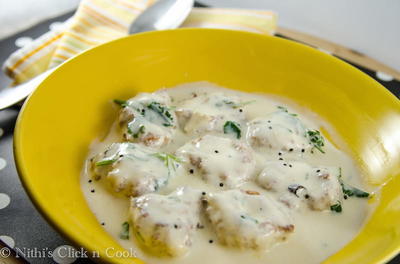
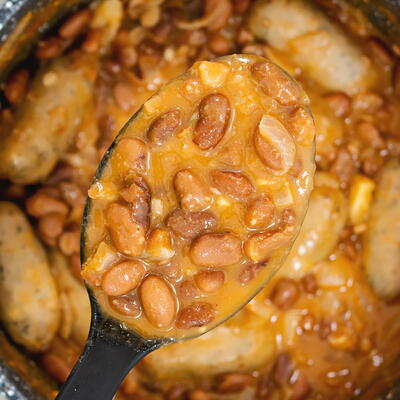
![How to Get Your Vitamins Without the Pills [Infographic]](http://irepo.primecp.com/2016/10/302486/Vitamins-Without-Pills---R2_Large400_ID-1906607.jpg?v=1906607)
